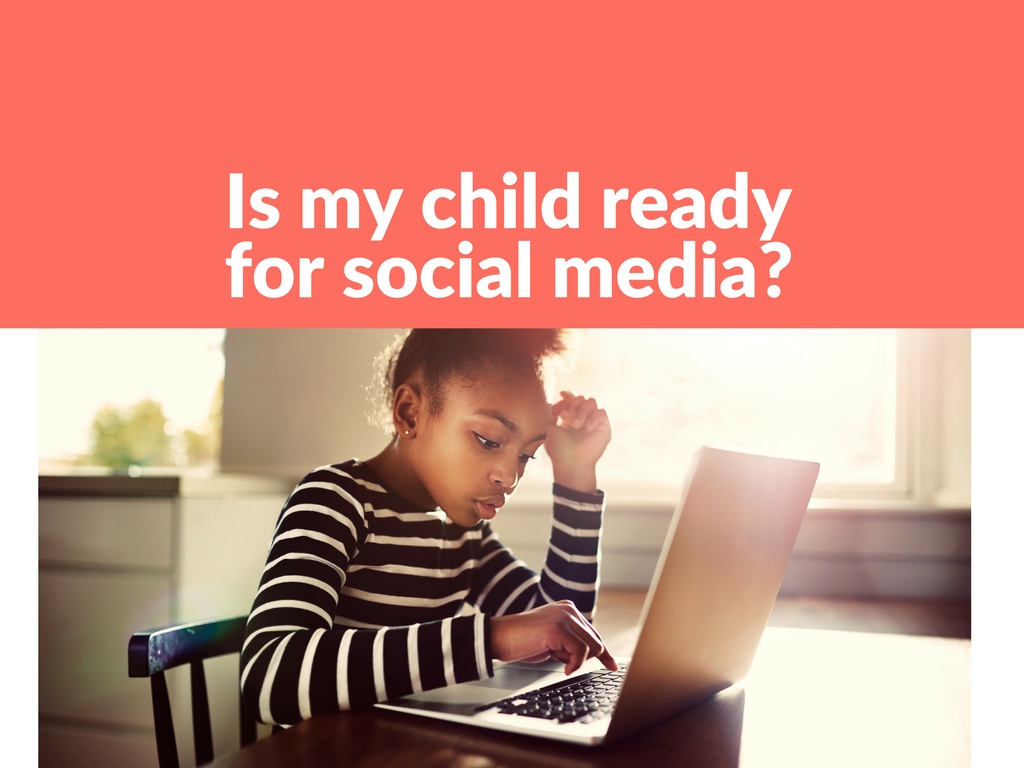Preparing your kids to be Awarded Regarding Social Media Platforms

The whole knowledge of social media seeks to connect people, yet you may feel completely out of the loop when it comes to your own children’s online activities. Protecting your children on social media generally begins with a simple chat, but there are other defenses parents can take for added peace of mind. Because your children may see social media differently than you do possibly very differently it is beneficial to observe the virtual world through their eyes.
Discuss About Social Media Safety with your Children.
Talk to your children. Discuss how to avoid strangers, how to avoid disclosing too much about yourself, and basic internet safety. Teach children some of the social media safety practices in this post to help them identify potential red flags. Encourage kids to seek your advice when confronted with problematic information or situations.
Keeping an Eye on Your children’s Social Media Profiles
In the real world, you keep an eye on your child. It’s also a good idea to be watchful of their internet lives. Here are some pointers for keeping an eye on your child’s social media profiles. The majority of applications have an age restriction. Make it a rule. Check the privacy settings of applications on a frequent basis. Companies frequently revise their privacy policies. Make sure to read the small print. On your child’s device, consider installing a reputable security suite with parental controls. Enable all safety mechanisms that protect youngsters from being exposed to inappropriate web information by mistake. Change the settings on their smartphones to require your approval before downloading an app. It is your responsibility as a parent to monitor what your children are doing online. Enforce your own standards with your family.

For example, if you spend some time going through Instagram’s “explore” page or TikTok’s “for you” page, you may learn a lot about what your kids view every day. You can safeguard your children on social media just like you can offline if you understand more about their online environment.
Maintain an Open Line of Communication with Your Children
You may either work with or against the reality that a large portion of young people’s social life increasingly take place online. Communicate freely with your children about their social media use. And your expectations and boundaries for their online behavior. These talks provide a chance for you to learn from them while also imparting key parental information such as safety, direction, and supervision. You may educate children the importance of using safe passwords and avoiding sharing personal information. While also having them describe the latest TikTok challenge to you. You may never be able to protect them from everything or know every detail about their online activities. But care the dialogue rolling ensures that you do not miss out on important safety discussions. Making the rules plain and constantly reiterating them implies they won’t be able to claim ignorance.
Obey the Age Requirement Guidelines
While you may wish to keep your children away from social media for as long as possible, it is unlikely that you will be able to do so indefinitely. Sites that collect data from their users must comply with federal legislation in the United States, which requires them to notify parents and get consent before allowing anybody under the age of 13 to join up, this is part of the government’s commitment to keep children safer online. TikTok, for example, is one of several platforms with this age restriction, and they swear they will take action if they detect anyone breaking the rule. When adoption for accounts, however, it is quite easy for children to lie about their age.
Establish Time Limits
Tweens’ self-discipline is still growing, therefore it’s not uncommon for them to spend hours on social media platforms. Work together to decide how much time they should spend using apps each day, whether it’s 15 minutes or an hour. You may also use Instagram’s Activity Dashboard to restrict use and reduce distractions such as push notifications. Set time limitations to minimize technological overload and to guarantee that your child does not ignore other aspects of his life (like homework). Limit your usage of electronics to common areas of your home.
Set the Privacy Preferences Together
Millions of individuals have access to any photographs and information your youngster shares if suitable privacy settings are not in place. For example, if your child has an unrestricted Twitter or Facebook account, friends of friends (of friends… of friends… you get the picture) may access all of her photographs, status updates, tweets, Instagram images, and other content. Furthermore, certain websites (such as Facebook) allow users to broadcast their location. Because many Facebook users have hundreds (if not thousands) of friends, the amount of people who can access information on your child’s account can be mind-boggling. Configure your child’s privacy settings so that only trusted friends and family members may view any activity. Allow your child’s location to be shared, and tell her about the safety risks of publishing where she is.
How you Should use Social Media to keep Children Safe
Find out about the programmers and applications that your child is utilizing. Some social media networks have age limitations for joining, but youngsters may easily circumvent them. Show an interest in your child’s internet activities and inquire about them. Keep tablets and laptops in common locations where you can keep an eye on them. Get online family security.

Parental controls programmers may block websites, establish time limits, and monitor the websites your kid visits as well as their online discussions. Follow your child’s internet accounts and inform them that you are keeping an eye on their online behavior to keep them safe. Some youngsters or teenagers may set up a bogus second account for their parents to follow or if you have attach card they may buy social media service or any think like that. It is critical to monitor your children’s online activities. Snooping, on the other hand, might alienate them and risk the trust you have created together. The goal is to be connected in a way that demonstrates to your children that you respect their privacy while yet wanting to ensure their safety.





